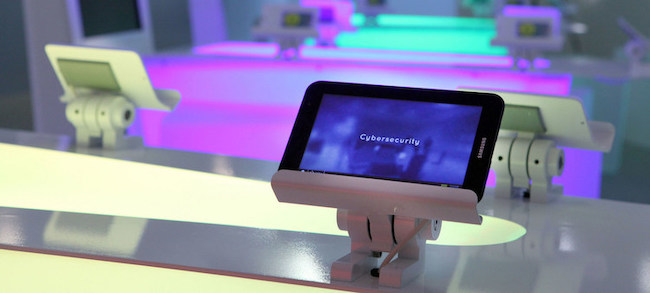By J Nastranis
NEW YORK (IDN) — As digital advances continue to revolutionize human life, the United Nations has called for remaining “vigilant” about malicious technologies that “could imperil the security of future generations”. Currently, there are over 4.6 billion internet users around the world. [2021-07-19] JAPANESE
It was not surprising, therefore, that UN High Commissioner for Human Rights Michelle Bachelet responded on July 19 to “Revelations regarding the apparent widespread use of the Pegasus software to spy on journalists, human rights defenders, politicians and others in a variety of countries are extremely alarming and seem to confirm some of the worst fears about the potential misuse of surveillance technology to illegally undermine people’s human rights”.
The revelations underlined the significance of what head of the UN Office for Disarmament Affairs (ODA), Ms Izumi Nakamitsu, said in a recent Security Council meeting focused on peace and security: “Digital technologies are increasingly straining existing legal, humanitarian and ethical norms, non-proliferation, international stability, and peace and security”.
Moreover, she continued, they are lowering access barriers and opening new potential domains for conflict—giving both State and non-State actors the ability to wage attacks, including across international borders.
By 2022, an estimated 28.5 billion networked devices will be connected to the internet, a significant increase from the 18 billion in 2017, according to the ODA chief.
From disinformation to deliberate network disruptions, in recent years there has been a dramatic jump in malicious incidents targeting information and communications technology (ICT) that diminish trust between States and threaten critical infrastructure that depends on it.
Ms. Nakamitsu recalled the Secretary-General António Guterres’ concern over increasing cyberattacks on healthcare facilities during the COVID pandemic, calling on the international community to do more to prevent and end them.
“Online violent extremism and trafficking have an often-overlooked differentiated impact on women, men and children, as do other ICT-related threats such as cyberstalking, intimate partner violence and the non-consensual dissemination of intimate information and images”.
This, she said, is the reason why “equal, full and effective participation” of both women and men in decision-making in the digital arena must be prioritized.
Fighting rising cyber crime
While ICT threats are on the rise, so too are efforts to address them. For more than a decade expert groups at the government level have studied and made recommendations to address existing and emerging ICT dangers to international security, including confidence-building, capacity-building and cooperation measures. A so-called Open-ended Working Group has adopted “concrete, action-oriented recommendations”, the UN official said.
Meanwhile, regional organizations are also undertaking efforts, from implementing voluntary, non-binding norms on States to pioneering regional confidence-building measures or adopting regional tools to reduce ICT risks.
The primary responsibility for international security lies with States. But since ICTs are an integral part of societies, participants too have a role to play in securing cyberspace, the High Representative declared.
“Perspectives from the private sector, civil society and academia contribute a unique and important part of the collective solution to cybersecurity that the international community is seeking.”
Ms. Nakamitsu said the UN “stands ready to support States” and others in promoting a peaceful ICT environment, and cited the Secretary-General’s High-level Panel on Digital Cooperation along with subsequent roundtable discussions.
On 11 June 2020, for example, Mr. Guterres presented a set of recommended actions for the international community to help ensure all people are connected, respected, and protected in the digital age. The Secretary-General’s Roadmap for Digital Cooperation is the result of a multi-year, multi-stakeholder, global effort to address a range of issues related to the Internet, artificial intelligence, and other digital technologies.
The action-oriented Roadmap presents the Secretary-General’s recommendations for concrete action by diverse stakeholders that would enhance global digital cooperation in the following areas:
- Achieving universal connectivity by 2030—everyone should have safe and affordable access to the internet.
- Promoting digital public goods to unlock a more equitable world—the internet’s open source, public origins should be embraced and supported.
- Ensuring digital inclusion for all, including the most vulnerable—under-served groups need equal access to digital tools to accelerate development.
- Strengthening digital capacity building—skills development and training are needed around the world.
- Ensuring the protection of human rights in the digital era—human rights apply both online and offline.
- Supporting global cooperation on artificial intelligence that is trustworthy, human-rights based, safe and sustainable and promotes peace.
- Promoting digital trust and security—calling for a global dialogue to advance the Sustainable Development Goals.
- Building a more effective architecture for digital cooperation—make digital governance a priority and focus the United Nation’s approach.
The Secretary-General’s Roadmap builds on recommendations made by the High-level Panel on Digital Cooperation, and input from Member States, the private sector, civil society, the technical community and other stakeholder groups.
Ms. Nakamitsu pointed out that also the UN chief’s Agenda for Disarmament, addresses new generation technologies that pose challenges to “existing legal, humanitarian and ethical norms; non-proliferation; and peace and security”, she added.
The agenda calls for working with scientists, engineers and industry on technological innovation for peaceful purposes, and engaging with Member States to “foster a culture of accountability and adherence to emerging norms, rules and principles on responsible behaviour in cyberspace”.
As the digital space has come to underpin most aspects of daily life, the scale and pervasiveness of ICT “insecurity” is a major concern, the UN Disarmament chief said.
She urged caution over assigning responsibility for ICT attacks, which could cause “significant consequences, including unintended armed responses and escalation”; States adopting “offensive postures” for hostile technology uses; and the development of “potentially destabilizing capabilities” by non-State armed and criminal groups, “with a high degree of impunity”. [IDN-InDepthNews – 19 July 2021]
Photo credit: ITU




